
Age Verification Laws: What Every User Should Know in 2025
In 2025, you’ll notice more websites getting stricter about age verification. Before you log in, you might need to upload your ID or do a face scan. From adult sites like Pornhub to social media like Reddit, governments in the US, UK, EU, and beyond are tightening restrictions.
This isn’t just a few new rules—it’s a major change for how you use the internet. But don’t worry, this guide will help you understand the new age verification laws and how they will significantly affect your online life.
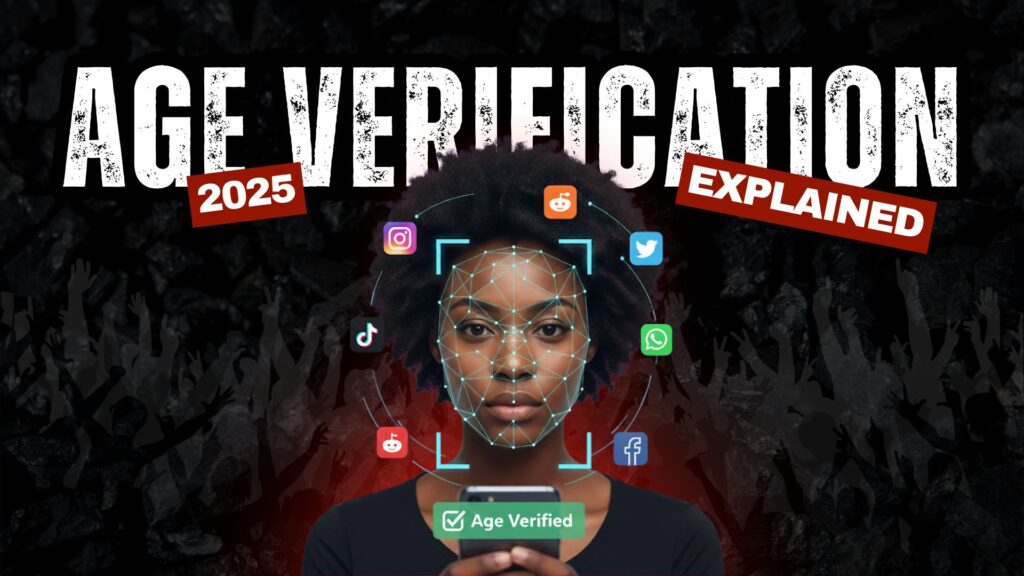
Table of Contents
What Is an Age Verification Law?
Age verification laws aren’t just a single law, but a category of laws requiring websites and apps to verify users’ ages. The goal is to prevent minors from accessing adult content, gambling, violent games, and other inappropriate material.
Originally, these laws focused on adult sites, but now they cover a lot more. Social media, gaming, gambling, shopping, livestreaming, and short video apps are all included.
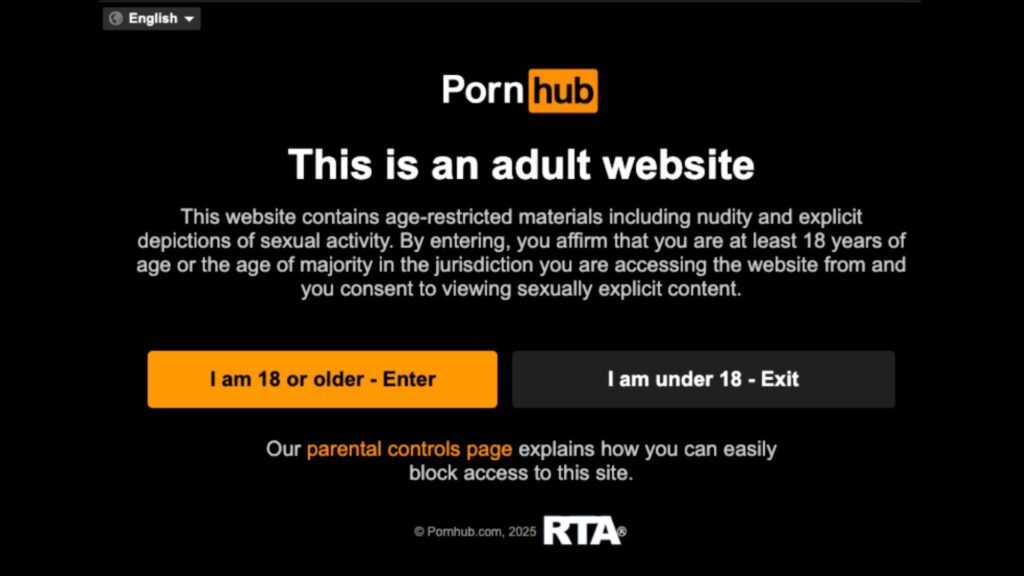
Before, you could just click “Yes, I’m over 18.” That is not enough anymore. Now, the law demands stricter age checks, such as:
- Uploading government ID: Submit a photo of your driver’s license or passport.
- Facial age estimation: Use AI to estimate your age by analyzing your face through a camera.
- Credit card verification: Use payment card details since they are generally held by adults.
- Third-party verification services (like AgeID, Yoti, or k-ID)
Websites that fail to follow these rules can face serious consequences—massive fines or even being blocked completely.
Why Are So Many Countries Now Requiring Age Verification?
As the internet keeps growing, it has become much easier for kids to access content not meant for them. That’s why governments are stepping in with new age verification laws. Here’s what they hope to do:
1. Protect minors from harmful content: Keep inappropriate material like porn, gambling, drugs, violence, and extremism away from minors.
2. Prevent online crimes against minors: Restrict minors from using certain social features (like messaging strangers) to reduce risks of cyberbullying, grooming, and scams.
3. Curb growing internet addiction: By verifying age, provide tech support to limit game time and spending.

4. Protect minors’ data privacy: Limit platforms from illegally collecting or using minors’ personal information or targeting them with intense advertising.
5. Address loopholes in old rules: The old “I’m over 18” checkbox is ineffective. Now, governments want more reliable systems that really work.
6. Respond to public concern: Public concern about children easily accessing unsafe content has grown. Age verification laws are, in part, a response to this pressure.
Global Age Verification Laws 2025: UK, US, EU & More
In the second half of 2025, global age verification laws will have moved from discussions and legislation to being actively enforced.
However, countries are applying these laws quite differently. The UK is the strictest, US rules vary by state, France and Australia target certain areas, and the EU sets broad regulations. These differences reflect different regulatory mindsets in each country.
United Kingdom

The UK has one of the toughest approaches to age verification. The Online Safety Act fully took effect in 2025 and is now in enforcement.
- Adult Websites: Sites like Pornhub and XVideos, no matter the size, must use “robust” technology like ID verification or age estimation approved by Ofcom. Self-declared ages are no longer allowed.
- Social Media: Platforms such as X (Twitter), Reddit, Discord, Bluesky, and Grindr require selfie videos or ID checks to restrict minors from accessing adult content.
- Search Engines: Google and Bing are updating their algorithms to filter out results inappropriate for minors.
Regulator Ofcom monitors major platforms closely and has clearly stated that violators will face severe penalties.
>> Related Reading: How to Access Pornhub in the UK Without Age Verification 2025?
United States

Unlike the UK, the US hasn’t introduced a nationwide age verification law. The requirements for age verification vary by state, creating a complex system.
- Adult Websites: In states like Texas and Florida, new laws require strict age checks. In response, major porn sites like Pornhub have chosen to block users in these states rather than implement extra verification.
- Social Media: Some states require parental consent for minors to sign up, but these laws have mostly been put on hold due to lawsuits from the tech industry. Some platforms are already taking action. For example, Bluesky Exits Mississippi Market over the laws. Others, like Meta and TikTok, are waiting for court decisions before rolling out these changes.
- Search Engines: Google and Bing mainly rely on their current safety policies. So far, they haven’t faced direct state-level enforcement like in the UK.
With no national standard, most platforms either avoid certain states or just follow basic rules, resulting in a patchwork system across the US.
Australia

Unlike the UK and the US, Australia focuses on regulating social media and search engines.
- Social Media: From December 2025, platforms like TikTok and Instagram must ensure all users are at least 16, higher than the usual global standard of 13. Major platforms are urgently updating their technology to meet the new rule.
- Adult Websites: Age verification isn’t required yet, but the government has finished a national trial, showing that regulation is likely coming soon.
- Search Engines: Google is gradually making SafeSearch mandatory for all logged-in users under 18 in Australia.
By raising the age limit for social media, Australia is setting a new, stricter standard for protecting teens online.
France

France is one of the strictest EU countries on age verification, especially for porn sites.
- Adult Websites: All sites must comply or be blocked. Major names like Pornhub and RedTube have paused services in protest, while ARCOM is actively blocking other non-compliant sites like Chaturbate.
- Social Media: While not the main focus, platforms must still follow the EU’s Digital Services Act to protect young users.
- Search Engines: Platforms like Google are required to support enforcement. If a site is blocked, it must be quickly removed from search results.
ARCOM leads enforcement and can order ISPs to block sites without a court order, making the system fast and effective.
European Union
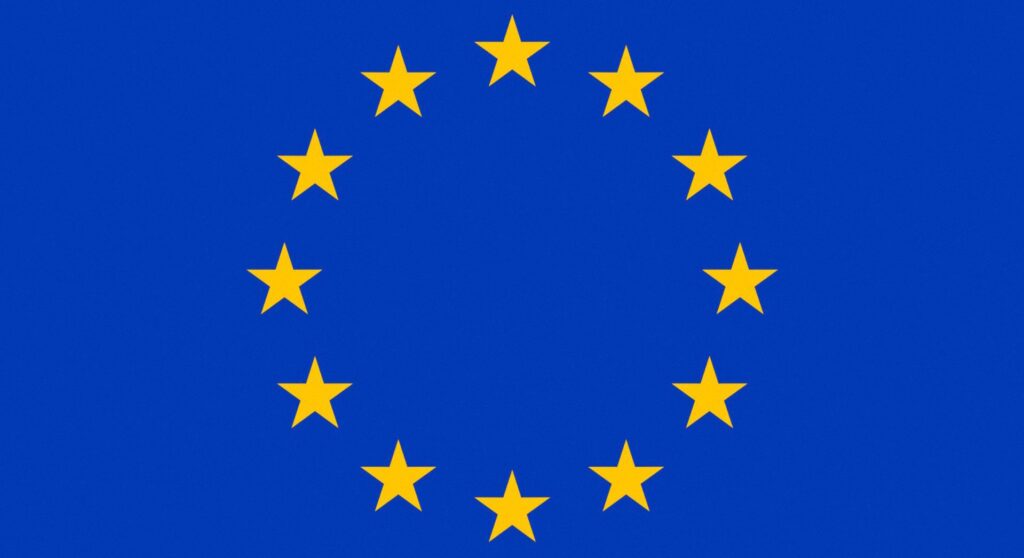
The EU’s Digital Services Act (DSA) has been officially in effect since July 2025. It’s not specifically an “age verification law,” but it works alongside the General Data Protection Regulation (GDPR) to create strong protections for minors online.
- GDPR (Privacy Rules): If a service needs user consent, platforms must get parental consent to process data of users under 16 (with member states choosing between ages 13–16). This requires platforms to identify which users are minors.
- DSA (Platform Responsibility): This law bans targeted ads to minors and demands large platforms (like TikTok, Google, etc.) assess and reduce risks to children.
- Platform Compliance: To meet the requirements of these laws, major platforms like TikTok, Meta, and YouTube now use age estimation and ID checks in the EU to reliably identify underage users.
The European Commission oversees large platforms, while national agencies enforce GDPR. This means platforms face dual compliance pressures in the EU.
How Age Verification Laws Could Affect You?
Age verification laws are changing how everyone uses the internet. Whether you’re a teen, a parent, or just a regular internet user, you’re part of this shift.
For Minors: Safety vs. Restriction
Teens are the main group these laws try to protect. They benefit from extra safety, but also face more restrictions.
- What they gain: A “cleaner” internet experience. They are less likely to see harmful content like porn or violence, and face lower risks of harassment or data misuse.
- What they lose: The freedom and privacy of browsing anonymously. They can no longer enter restricted areas by lying about their age. To prove their age, they need to provide some personal data (like school ID or facial information), losing the anonymity they once had.
For Parents: New Power vs. New Responsibility
Parents now have more direct control over their children’s online activity, but also new duties.
- What they gain: Greater control and peace of mind. Laws and platforms give parents more control, allowing them to directly manage their children’s accounts, screen time, and content access.
- What increases: New responsibilities. Parents need to learn platform settings, handle consent requests, and stay in close communication with their children about online safety.

For Regular Adult Users: Convenience vs. Privacy
For adult users, the main impact is less freedom to browse as easily as before.
- What they lose: A seamless, unrestricted browsing experience. Content that was once easily accessible now requires users to “prove who they are” and “confirm their age,” adding extra steps and inconvenience.
- What they worry about: Personal data security. Now, just to watch a video or join a conversation, you might have to upload your ID or facial info to numerous websites. They have to worry about whether their personal information might be leaked or misused. Data security has become a new anxiety.
For Website and Platform Operators: Compliance vs. Cost
Platforms face the biggest pressure as they put these changes into action.
- What they must do: Invest heavily in compliance upgrades. Major investments in compliance. Companies have to build and maintain age verification systems and hire more legal and tech staff to meet rules in different countries.
- What they face: Losing users and revenue. More complicated steps may drive users away, especially teens, which can affect traffic and profits. Besides, any compliance mistakes could mean heavy fines.

For Marginalized Groups: Higher Barriers, Even Danger
For vulnerable groups who depend on anonymity, age verification can be more than an inconvenience—it can be a high wall or even a danger.
- Domestic abuse victims: For minors in abusive homes, the internet may be their only way for help and support. The “parental consent” rule could cut off their lifeline for seeking assistance.
- Those without ID or in poverty: The law often assumes everyone has a government ID, leaving out the homeless, some immigrants, or people in poverty. This can cut them off from basic online services and worse social inequality.
- Dissenters and those in sensitive professions: Activists, journalists, or whistleblowers who need anonymity could be exposed by mandatory ID checks, putting them at risk and silencing their voices.
In addition to the impact on these groups, there’s a bigger question: Do these laws really work in practice? Will people just find ways to get around them? That’s what we’ll talk about next.
Can You Bypass Age Verification? Loopholes and Unexpected Risks
Age verification is getting stricter, but tech-savvy users, especially teens, often find ways around it. Age verification isn’t foolproof. Here are some common workarounds:
- VPNs: By changing their IP address with some free VPNs, users can pretend they’re from a country without age verification requirements. That’s why, after Pornhub was restricted in the UK and France, VPN searches skyrocketed.
- Tricking facial scans: Some use AI tools like deepfakes or altered photos to fool face-scanning systems.
- Borrowing an Adult’s ID: Some teenagers use the IDs or credit cards of parents, siblings, or other adults. Platforms can’t always tell who’s really behind the screen.
- Fake or Bought IDs: Fake IDs are easy to buy online, making it simple to get past verification systems.
- Third-party verification services: Some shady websites even offer “age verification help” services. You pay a fee, and they will handle the process.
These loopholes weaken the rules and open the door to new dangers. Untrustworthy VPNs and shady verification services can steal your data. Worse, teens dodging age checks may end up on even less-regulated, more dangerous websites.
5 Major Concerns About Age Verification
While there’s a consensus on protecting minors, age verification brings up big debates and worries. Here are the top 5 concerns:
1. Privacy and Data Security Risks
To verify their age, users often have to upload IDs, selfies, or even credit card details. If this data gets leaked, it could lead to identity theft, harassment, or even being sold to third parties.
Many people also worry that these databases could be targets for hackers or might end up being used for government tracking.
2. Doubts About Effectiveness
Many people question whether age verification truly keeps minors out. As mentioned earlier, teens can easily bypass these checks using VPNs or borrowing IDs. If the verification is bypassed, should platforms still be responsible for protection? This remains a legal gray area.
Tech isn’t perfect, either—AI and face scans can make mistakes, so some minors still sneak through and some adults get wrongly blocked.
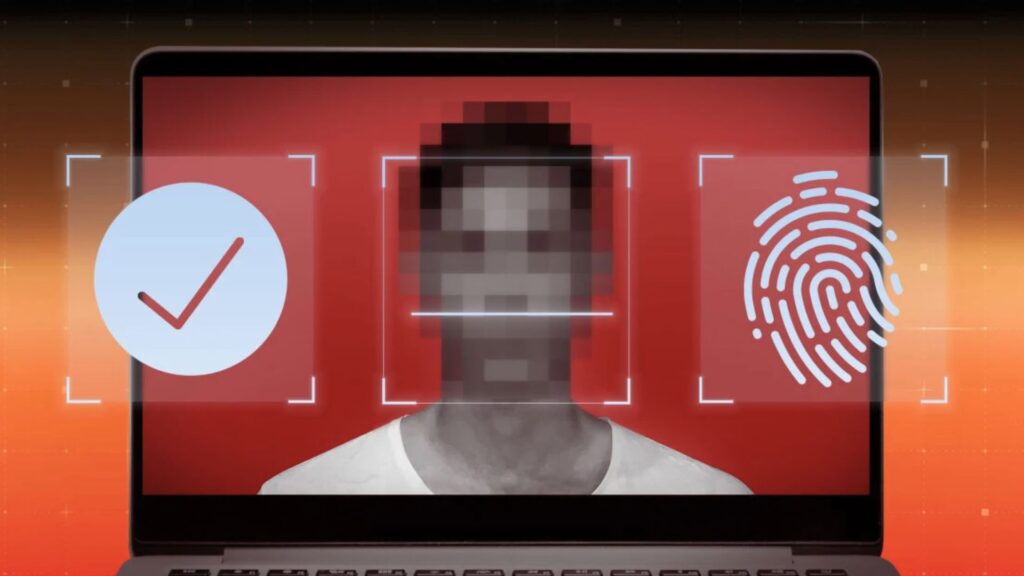
3. Worse User Experience
For websites visited only occasionally, many people would rather leave than upload their ID or keep verifying themselves. This not only affects the user experience but also results in lost traffic for many sites.
4. Survival Pressure for Small and Medium Platforms
Big tech companies have the resources to comply with these regulations, but many small and medium-sized businesses may not survive. They might be forced to shut down because they can’t afford the verification systems.
This limits innovation and competition, making the internet even more dominated by a few large companies.
5. No Global Standard
Age verification laws vary widely around the world. Some countries focus on privacy, others demand strict checks, and some don’t have laws at all. For platforms that operate globally, keeping up with all these laws is a massive challenge, both financially and legally.
All these controversies point to one big challenge: How do we protect children while also ensuring adults’ rights and maintaining an open internet? There’s no perfect solution yet, and the world is still searching for the right balance.
What’s Next for Age Verification Laws: Stricter, Smarter, and Widespread
As age verification laws and technology continue to evolve, the future will likely center around 3 major trends: stricter, more intelligent, and more widespread.
More Strict Rules
Laws will only get tougher. Regulators are closing loopholes, stepping up enforcement, and raising fines. Age verification will become mandatory almost everywhere, leaving little room to dodge the rules.
More Intelligent Technology
In the future, age verification might be even less intrusive, happening automatically without bothering the user, making the process quicker and harder to bypass.
More Widespread Coverage
Age verification, which started with adult sites, is rapidly expanding. Social media, live streaming, e-commerce, app stores, and even search engines are now being included.
New “unified ID” systems are also emerging, letting you verify your age once and use it everywhere. In the future, age checks might become as basic to logging in as 2FA or CAPTCHA.
Should VPNs Also Have Age Restrictions?
As mentioned earlier, many minors use VPNs for phones to easily bypass age checks. It’s easy, often free, and has become one of the biggest loopholes. As a result, a lot of people are calling for VPNs to be regulated. So, should VPNs have age restrictions?
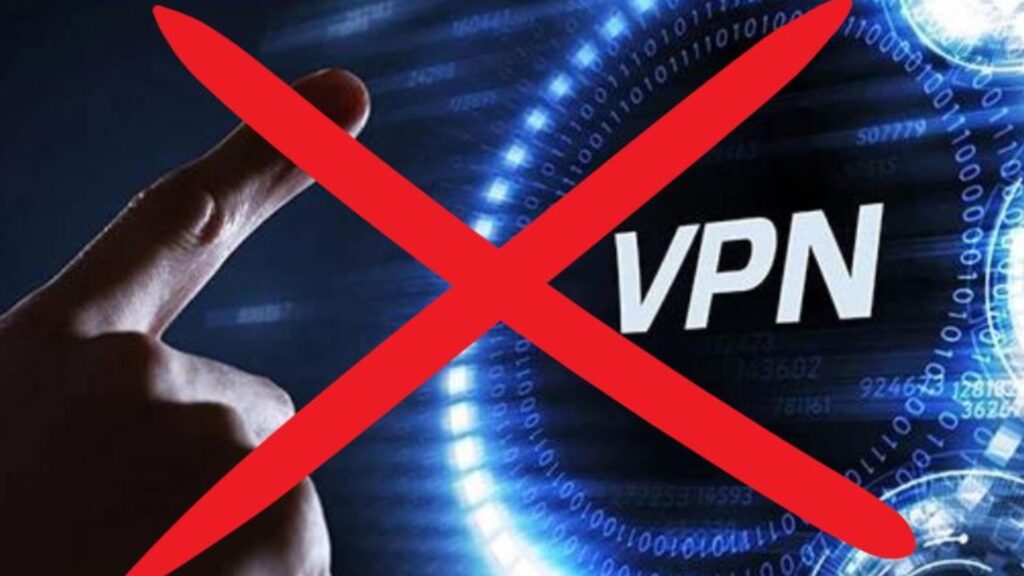
Completely banning or strictly limiting VPNs for minors might not be the best solution. Here’s why:
- VPNs have many legit uses: Many people use VPNs to protect their online privacy, secure their communications, or access blocked information. In countries with strict controls, VPNs are almost essential for dissenters, journalists, and others. Age-verifying VPNs could harm those who genuinely need them.
- It’s hard to enforce: VPN providers are global, and blocking them all is nearly impossible. Strict rules may just push users to even more underground tools.
- It sets a risky precedent: If VPNs get age limits, browsers or other internet tools could be next, making the internet less open and killing innovation.
So far, most countries haven’t set age limits for VPN use, but debate is heating up. France has discussed restricting VPN usage for minors. Australia has suggested similar ideas. The UK also sees VPNs as an obstacle to enforcing the Online Safety Bill.
The debate will continue in the future, but blocking tools is never a fundamental solution. Smarter verification, plus better education and guidance, is a better choice.
How We Can Prepare for the Age Verification Era
With more and more websites and apps now enforcing age checks, it’s inevitable that the average adult user will be affected. So, how can we adapt to these changes?
- Accept that age checks are the new normal: Age verification is becoming a legal requirement in many countries, so it’s important to mentally prepare for this change.
- Be more careful with your personal data: Only submit age verification to reputable sites. Don’t share your ID or private data casually. Stay alert for scams and phishing attempts.
- Check privacy policies: Take a few minutes to check how a site stores and uses your data. If their policies are unclear or seem excessive, ask or just don’t provide your info.
- Enhance account security: Use strong passwords and enable two-factor authentication. Regularly check important accounts to prevent others from misusing your identity or age information.
- Defend your privacy and user rights: If a site’s age check feels invasive or asks for unnecessary data, you can choose not to use it and give feedback. You don’t have to silently accept everything. You have the right to stand up for your online experience and privacy.
Final Thoughts
Age verification is quickly becoming a normal part of being online. It’s intended to protect kids from harm, which is a good thing. But in practice, it also brings inconvenience, controversy, and even new risks. As users, we all need to adapt, stay informed, and protect our privacy. By approaching these changes with a clear head, we can stay both safe and free in this next phase of the online world.




